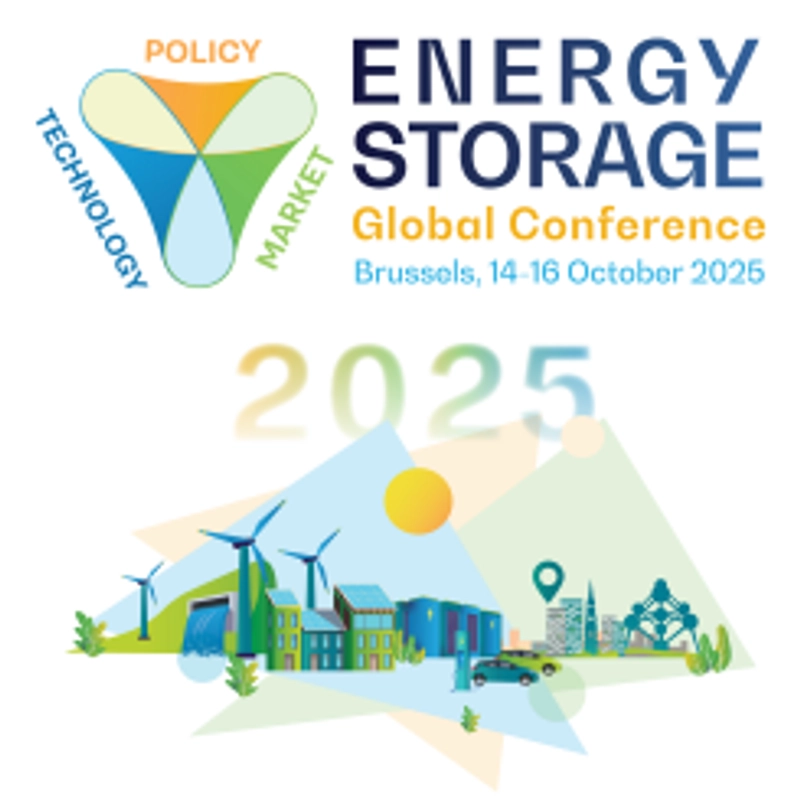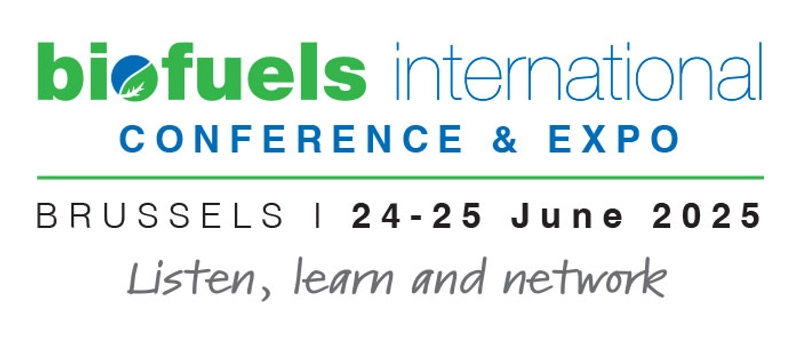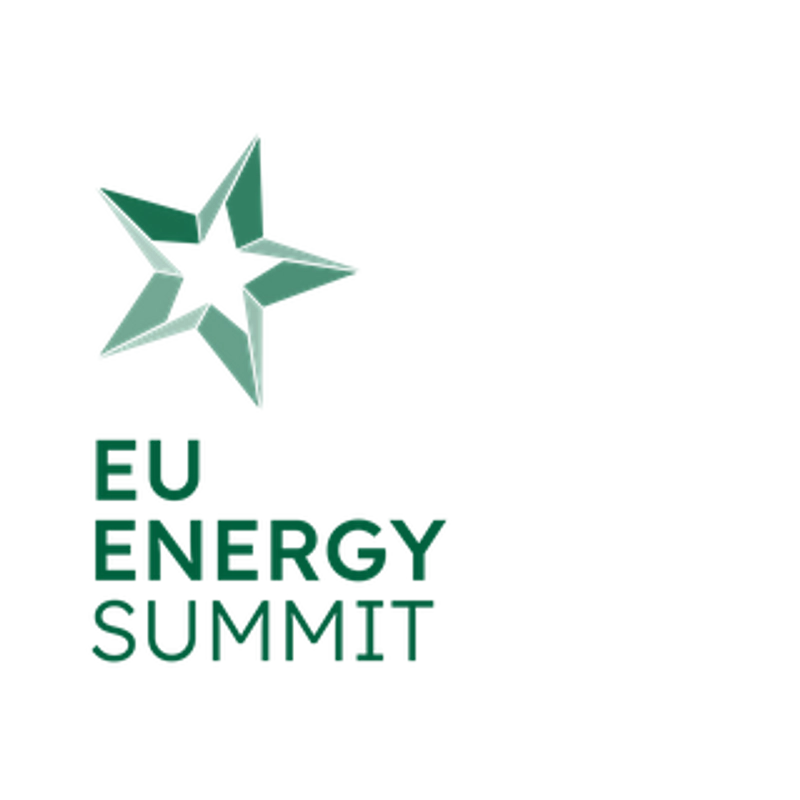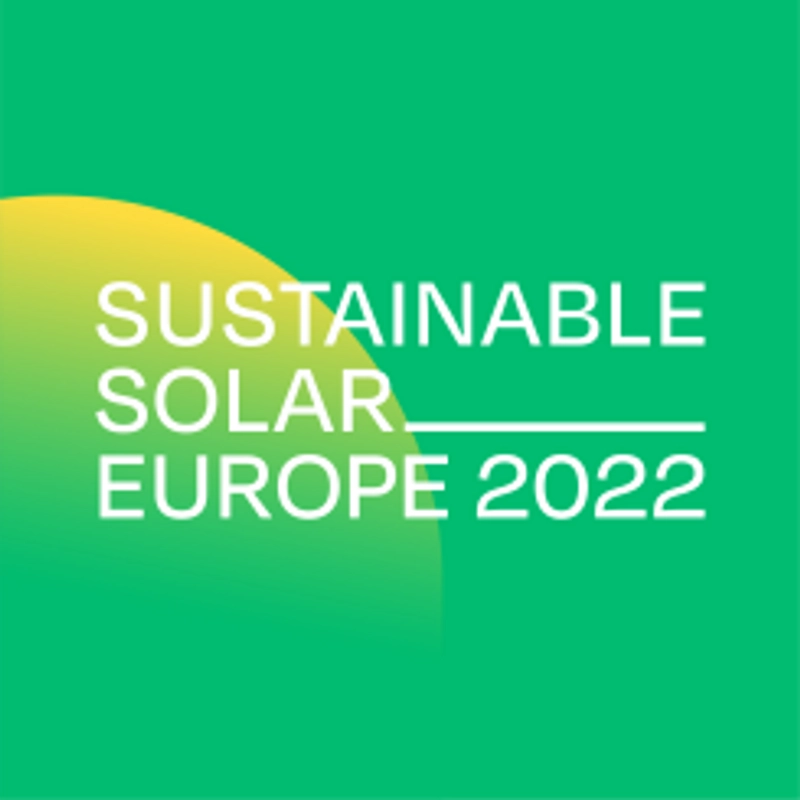Energy Eventos en Brussels


Energy Storage Global Conference
Energy Storage Global Conference (ESGC): Pioneering the Future of Energy Storage
A Global Platform for Energy Storage Innovation and Policy
Since its inception in 2014, the Energy Storage Global Conference (ESGC) has established itself as one of the premier international events dedicated to the rapidly evolving field of energy storage. Gathering policymakers, industry leaders, technology developers, and investors from across the globe, ESGC provides an unparalleled platform to exchange knowledge, discuss policy frameworks, and explore emerging technologies shaping the future of energy storage systems.
With the world accelerating its transition to cleaner energy sources, the role of storage has become increasingly pivotal. The conference highlights how energy storage solutions—ranging from advanced batteries to thermal storage and beyond—are key to balancing supply and demand, stabilizing grids, and enabling the integration of renewables.
Key Themes Driving the Energy Storage Conversation
At ESGC, the conversation extends beyond technology, delving deeply into the economic, regulatory, and practical dimensions of storage deployment worldwide. The conference agenda typically features a mix of keynote presentations, panel discussions, and workshops addressing topics such as:
Energy Storage Policy and Market Design
Understanding regulatory approaches and incentives that accelerate storage adoption
Technological Innovations
Advances in battery chemistries, flow batteries, and emerging storage technologies
Grid Integration and Flexibility
The role of storage in enhancing grid resilience and managing variable renewable generation
Investment and Financing
Exploring funding models, risk mitigation, and commercial viability of storage projects
Applications Across Sectors
From residential and commercial storage to utility-scale and microgrid solutions
These themes reflect the multifaceted nature of energy storage and its critical place in achieving global decarbonization goals.
A Hub for Policymakers and Industry Leaders
One of ESGC’s unique strengths lies in its ability to bridge the gap between policy and practice. The event brings together a wide range of stakeholders—including government officials, regulators, project developers, and corporate buyers—to foster dialogue on how to build supportive policy environments that unlock market growth.
Benefits of ESGC for attendees include:
Insight into best practices from leading markets and pioneering projects worldwide
Opportunities to engage with regulators shaping future energy frameworks
Access to cutting-edge research and data on storage costs, performance, and market trends
Platforms for public-private collaboration to accelerate technology deployment
By connecting decision-makers with innovators, ESGC helps translate ambition into action, facilitating the deployment of storage solutions at scale.
Driving Investment in a Growing Market
As energy storage technologies become more cost-effective and diverse, investment interest continues to surge. ESGC serves as a critical meeting point for financiers, venture capitalists, and corporate investors eager to identify promising opportunities within the sector.
The conference often features sessions focused on:
Investment trends and future forecasts in global storage markets
Risk management and due diligence for storage projects
Innovative financing models, including green bonds and public-private partnerships
Market signals and policy certainty necessary for attracting capital
This focus on investment underscores the conference’s role as a catalyst for unlocking the financial resources required to support global energy storage growth.
A Decade of Growth and Global Impact
Since it first convened in 2014, the ESGC has grown steadily in scale and influence. It now attracts energy professionals from every continent, reflecting the global importance of storage technologies in the energy transition.
Over the years, the conference has witnessed:
The rise of lithium-ion batteries as the dominant technology
The emergence of grid-scale storage projects supporting renewables integration
Increasing focus on sustainability and circular economy principles within storage manufacturing
Greater emphasis on hybrid systems combining storage with renewable generation or demand response
This evolution showcases how ESGC remains at the cutting edge of industry development and policy innovation.
ESGC as a Cornerstone for Energy Storage Advancement
In a world shifting rapidly toward renewable energy, the Energy Storage Global Conference stands as an essential forum for connecting expertise, influencing policy, and accelerating market growth. It is a space where ideas become strategies and strategies become tangible projects powering the future.
For anyone involved in energy storage—whether from government, industry, finance, or research—ESGC offers an unmatched opportunity to gain insights, foster collaboration, and help drive the global energy transition forward.


Biofuels International Conference & Expo
Biofuels International Conference & Expo in Brussels: Charting a Greener Energy Future
Set in the heart of Europe, The Biofuels International Conference & Expo in Brussels, Belgium, marks its 16th edition by reaffirming the pivotal role of biofuels in the global energy transition. Over the course of two days, the event brings together leading producers, suppliers, regulatory authorities, and a wide spectrum of stakeholders working toward a low-carbon future. Following the remarkable success of last year’s gathering, which attracted more than 350 attendees from across the biofuels value chain, expectations for this year’s discussions are higher than ever.
With the climate crisis escalating and energy security becoming an increasingly urgent geopolitical concern, biofuels are stepping into the spotlight as scalable, actionable solutions. From first-generation bioethanol to advanced bio-based aviation fuels, the sector is rapidly evolving to meet modern energy needs — without compromising sustainability.
Key Themes: Decarbonization, Net Zero, and Energy Independence
At the core of the Biofuels International Conference & Expo lies a critical agenda: helping governments and businesses transition to cleaner energy models. The conference focuses heavily on decarbonization strategies and how biofuels can contribute to national and corporate efforts to achieve net-zero emissions.
Throughout the event, keynote speakers and panelists address the following central themes:
Integrating biofuels into national energy strategies
The role of sustainable aviation fuels (SAFs) in decarbonizing air transport
Regulatory frameworks and incentives for producers
Advanced feedstock options and land-use impacts
Innovations in bio-refinery technologies
The emphasis is not just on the science, but on actionable pathways that can scale efficiently — and equitably — across borders.
Industry Collaboration and Regulatory Alignment
One of the most valuable features of the Biofuels International Conference is its ability to foster cross-sector collaboration. In a world where energy solutions often evolve faster than policy, bringing together stakeholders from multiple levels — including government, research institutions, NGOs, and private industry — is vital.
A key panel discussion centered on the European Union’s Fit for 55 package and the Renewable Energy Directive (RED III), highlighting:
How policy clarity boosts investor confidence
The need for a unified certification system across EU states
Balancing food security with energy crop development
Encouraging small-scale biofuel initiatives in rural economies
Participants stressed the importance of aligning international regulations to avoid market fragmentation and to ensure smoother trade of certified sustainable fuels.
Expo Highlights: Technology, Feedstocks, and Market Trends
Running alongside the conference is a comprehensive expo featuring dozens of companies from across the biofuels landscape. The exhibition showcases innovations ranging from enzymatic conversion technologies to modular bioreactor units, providing a snapshot of where the industry is headed.
Some of the most popular exhibits included:
Next-generation algae-based biofuels
AI-driven biomass supply chain optimization tools
Upcycling waste fats and oils into biodiesel
Carbon intensity monitoring platforms
What stood out this year was the growing emphasis on flexible feedstock usage, allowing producers to source inputs from diverse geographies while maintaining sustainability criteria.
Bridging Science and Investment: What’s Fueling Growth?
The Biofuels International Conference is not just a scientific or technical forum — it is also an investment incubator. Sessions dedicated to funding mechanisms, risk reduction, and market forecasting drew strong interest from venture capitalists, private equity firms, and institutional investors.
Speakers from leading green investment firms outlined key factors influencing capital flow into the biofuels sector:
Policy certainty and long-term regulatory support
Commercial scalability of pilot projects
ROI visibility and carbon credit monetization
Availability of skilled labor and supply chain infrastructure
The conference acts as a bridge, connecting innovative startups with the capital and expertise required to expand globally.
Educational Tracks and Youth Engagement
This year’s event also included a dedicated track for universities and young professionals, underscoring the importance of grooming the next generation of biofuel experts. With increasing demand for talent in environmental sciences, chemical engineering, and energy policy, the education segment of the expo was particularly dynamic.
Topics covered in the student sessions included:
Introduction to biofuel chemistry and engineering
EU climate goals and the energy transition
Startup case studies in green fuel innovation
Career development workshops for future industry leaders
These sessions not only educated but inspired — a critical element in ensuring the long-term sustainability of the sector.
Biofuels as a Strategic Pillar of Global Energy Policy
As the curtains close on the 16th Biofuels International Conference & Expo, one message rings loud and clear: biofuels are no longer niche — they are necessary. In the collective push toward net zero, bio-based fuels provide an essential piece of the puzzle, particularly for hard-to-electrify sectors like aviation, shipping, and heavy transport.
Held at a time when global tensions and climate threats intersect, the event provided not only a platform for solutions but a shared sense of urgency. From innovative technologies and regulatory alignment to investment trends and youth engagement, the conference showcased a comprehensive vision for a bio-powered future.
In Brussels — a city that often sets the tone for continental energy and environmental policy — this summit cemented biofuels as a strategic pillar in building a cleaner, more resilient, and more secure energy world.


EU Energy Summit
The EU Energy Summit: Navigating the Future of Power and Sustainability
The EU Energy Summit is one of the most prestigious conferences within the energy sector, drawing attention from professionals and experts across the globe. Organized by the European Business Summits, the event takes place annually at the renowned Egmont Palace in Brussels, Belgium. This venue is not only a symbol of European diplomacy but also an ideal setting for tackling the complex issues surrounding energy sustainability, policy development, and innovation.
The summit’s core objective is to bring together industry leaders, policymakers, academics, and other stakeholders to engage in rich discussions about the evolving landscape of power and energy. With a country ranking of 82, the EU Energy Summit is widely recognized for its influence and importance within the energy sector. It offers a platform for addressing challenges and opportunities and provides attendees with insights into cutting-edge energy technologies and future trends.
Focus Areas of the EU Energy Summit
At the heart of the EU Energy Summit are the pressing issues that are currently shaping the energy sector. With a spotlight on energy sustainability, policy development, and the integration of innovative technologies, the summit offers a comprehensive examination of the global energy landscape. This allows the summit to address challenges such as climate change, rising energy demands, and the transition to renewable energy sources.
1. Sustainability in Energy Production
As the global demand for energy continues to rise, sustainability has become a primary concern for industry professionals, policymakers, and consumers alike. The summit aims to highlight the importance of integrating renewable energy sources into national and international energy grids. From solar energy to wind power, hydroelectric and geothermal energy, the transition to clean, sustainable energy solutions is a central theme at the EU Energy Summit.
In addition to discussing the technological advancements that have made renewable energy more viable, the summit will also focus on policy measures that can support these transitions. By providing a platform for collaborative dialogue, the summit encourages the exchange of ideas and solutions that can enhance sustainability in energy production and consumption.
2. Policy Development and Governance
The role of policy and governance in shaping the energy sector cannot be overstated. As governments around the world strive to meet climate goals and balance economic growth with environmental protection, regulatory frameworks and policy development play a crucial role in determining the future of energy. At the EU Energy Summit, policymakers from across the European Union and beyond will discuss the most effective strategies for energy governance.
The summit will also delve into global cooperation on energy policy, particularly as international efforts to tackle climate change continue to evolve. The integration of international regulations and national policies will be a key point of discussion, as participants seek to find common ground on how best to address the global energy crisis.
3. Innovation and Technological Advances in Energy
With the rapid pace of innovation in the energy sector, technology has become a driving force in shaping the future of the industry. From the development of smart grids to advancements in energy storage technologies, the EU Energy Summit will showcase the latest innovations that are revolutionizing the energy landscape.
Emerging technologies such as artificial intelligence (AI), blockchain, and Internet of Things (IoT) are becoming essential tools for optimizing energy production and consumption. These technologies can improve efficiency, reduce waste, and help stakeholders better understand and manage energy systems.
The summit will provide a deep dive into these technologies, presenting case studies and real-world examples of how they are being applied across the globe. Attendees will have the opportunity to engage with technology experts and learn about new tools that can help drive the energy transition.
Key Participants at the EU Energy Summit
The EU Energy Summit attracts a diverse and distinguished audience, ranging from academics to energy professionals, government officials, and industry leaders. These individuals come together to share insights, discuss critical challenges, and explore collaborative opportunities within the energy sector. The forum provides an invaluable opportunity for networking, knowledge exchange, and building partnerships for the future of energy.
1. Industry Leaders and Executives
The summit is an important meeting point for key industry leaders, who play a pivotal role in shaping the direction of energy production and consumption. CEOs and executives from energy companies will be present, discussing the current state of the market and offering their perspectives on the future of energy technologies and market trends.
2. Policymakers and Government Representatives
In addition to industry leaders, government officials from various countries, including Belgium and Nigeria, will be present to share updates on national energy policies and regulations. As the global energy sector is deeply intertwined with political decisions, government participation is crucial for fostering international cooperation and ensuring the continued growth of the energy industry.
3. Academics and Researchers
Academics, particularly those specializing in energy science, environmental studies, and sustainability, are an integral part of the EU Energy Summit. Researchers from prominent universities and institutions will present their latest findings and contribute to discussions about the future of energy. Their contributions will focus on the scientific and technological innovations that are crucial for advancing energy sustainability and efficiency.
Opportunities for Networking and Collaboration
The EU Energy Summit is more than just an event for discussions and presentations—it is a unique platform for networking and collaboration. Attendees can meet potential business partners, explore new investment opportunities, and engage with other stakeholders in the industry. The conference also offers numerous workshops, panel discussions, and roundtables, which provide deeper insights into specific aspects of energy policy, technology, and sustainability.
1. Business Networking Opportunities
For companies in the energy sector, the summit offers a prime opportunity to connect with investors, suppliers, and potential clients. With a diverse audience from all over the world, the summit provides a unique chance to expand business networks and create new partnerships that can drive future growth in the energy sector.
2. Knowledge Sharing and Learning
The EU Energy Summit is not just about discussing policy and technology—it’s also about learning. The event offers participants the opportunity to gain a deeper understanding of the latest developments in the energy sector. Whether it’s through workshops, webinars, or seminars, attendees will leave with valuable knowledge that can help them navigate the complex and ever-changing world of energy.
Shaping the Future of Energy
As the world faces mounting challenges related to climate change, energy security, and economic development, events like the EU Energy Summit play a critical role in shaping the future of the energy sector. By bringing together stakeholders from across the globe, the summit fosters collaboration and drives progress toward a more sustainable and efficient energy future.
The EU Energy Summit provides a platform for discussing the most pressing issues in the energy industry, from sustainability and policy development to technological innovation. It offers valuable networking opportunities, facilitates the exchange of ideas, and promotes collaboration between industry professionals, academics, and policymakers.
For anyone involved in the energy sector, from government officials to energy companies and researchers, attending the EU Energy Summit is a unique opportunity to contribute to the ongoing evolution of the global energy landscape and ensure a more sustainable future for all.


Sustainable Solar Europe
In recent years, the transition towards sustainable energy sources has taken on a new sense of urgency across Europe. One of the most promising solutions to Europe’s energy challenges is solar power, a resource that has seen rapid growth due to its potential to offer a clean, renewable, and abundant source of energy. The event Sustainable Solar Europe serves as a crucial platform for industry players, academics, policymakers, and various stakeholders to come together and discuss the solar sector’s evolving role as Europe’s primary energy source. This gathering highlights key issues, challenges, and opportunities within the solar industry, with a particular focus on innovation and collaboration that will shape the future of energy across the continent.
At the core of the discussions is the need for greater supply chain transparency. The solar industry, much like other renewable energy sectors, faces complex global supply chains, which have grown even more intricate with the increasing demand for solar technology. Ensuring transparency is not just about tracking the flow of materials; it’s also about making the entire process more ethical and sustainable. By addressing these supply chain challenges, participants aim to enhance the reliability of solar energy production while minimizing environmental and social impacts.
Another critical issue discussed at the event is the regulatory framework surrounding solar power. Policymakers play an essential role in creating conditions that foster the growth of the solar industry, from establishing incentives for solar installation to creating fair, effective, and transparent regulatory systems. As Europe continues its push to meet ambitious carbon reduction goals, it is clear that a strong, coherent policy framework will be necessary to scale up solar energy deployment. By aligning policies at the national and EU levels, stakeholders can ensure that the transition towards a solar-powered future is both efficient and equitable.
In addition to these macro-level challenges, innovative solutions in solar technology are also a central point of focus. Floating solar, a relatively new concept, is gaining traction across Europe. Floating solar panels, which are installed on bodies of water such as lakes and reservoirs, allow for the efficient use of space while reducing land use conflicts. As the demand for land increases and urbanization intensifies, floating solar offers a promising alternative that could drastically increase solar energy capacity without taking away valuable agricultural or urban land.
Agrivoltaics, the practice of combining solar power generation with agriculture, is another area of considerable interest. This dual-use approach allows for the simultaneous production of clean energy and food. Solar panels are installed above crops, providing them with partial shade, which can enhance crop yield in certain climates while allowing for solar power generation underneath. As Europe faces both an energy crisis and a food security challenge, agrivoltaics presents a unique opportunity to address both issues while minimizing land use and maximizing the potential of available resources.
While technological innovations and regulatory reforms are essential, the solar industry must also grapple with end-of-life challenges, particularly in terms of photovoltaic (PV) panel disposal and recycling. As the solar industry expands, millions of PV panels will eventually reach the end of their life cycle, raising concerns about how to dispose of them sustainably. Without proper solutions, the growing volume of waste could offset the environmental benefits of solar energy. The concept of a circular economy is gaining momentum, where old panels are recycled, and their materials are reused in new products. By exploring these solutions, the solar industry can minimize its environmental footprint, making the entire lifecycle of solar power generation more sustainable.
The event is also an opportunity for stakeholders to share best practices and the latest policy updates. As the solar industry is rapidly evolving, staying informed about the latest technological developments and regulatory changes is crucial for making informed decisions. Whether it is learning from successful case studies in solar adoption or understanding new policies that will affect solar installations, participants can gain valuable insights into the state of the industry and what lies ahead.
Sustainable Solar Europe is a gathering that embodies the spirit of cooperation and progress. By bringing together leaders from diverse sectors, the event underscores the importance of collaborative efforts to tackle the challenges of the energy transition. As Europe continues to move towards a future powered by solar energy, the collective input from these various stakeholders will be pivotal in driving innovation, shaping policies, and ensuring that solar power becomes a cornerstone of a sustainable, energy-secure Europe.